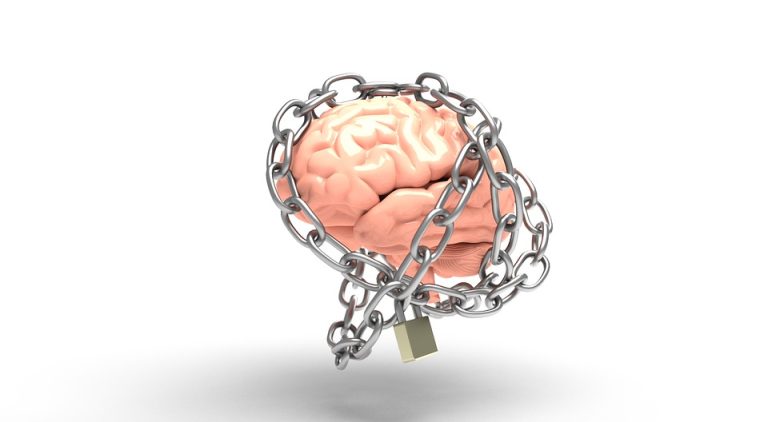
Discover how daily meditation can transform your mind, body, and life. Learn its benefits, types, and easy steps to start meditating today.
Introduction to Meditation
In today’s fast-paced world filled with stress, noise, and distractions, peace of mind seems like a luxury. But there’s a powerful tool available to everyone — it’s called Meditation.
Meditation is a practice that helps you connect with your inner self, calm your mind, and find balance in your life. It’s not just for monks or yogis — it’s for anyone who wants better focus, emotional strength, and a sense of inner peace.
In this article, we’ll explore what meditation is, how it works, its amazing benefits, different types, and how you can start today — even if you’ve never tried it before.
What is Meditation?
Meditation is a mental exercise that trains your awareness, attention, and emotions. It involves focusing your mind and eliminating distractions to achieve mental clarity and emotional calmness.
People have been practicing meditation for thousands of years. It started as a spiritual practice in ancient India, China, and Tibet, but now it’s also embraced for mental health, healing, and personal development.
Whether you’re religious, spiritual, or simply looking for mental peace, meditation is a universal tool that helps you live more mindfully and peacefully.
The Science Behind Meditation
You don’t have to rely only on ancient wisdom — modern science supports the benefits of meditation too.
- Brain Changes:
Studies using brain scans show that meditation increases gray matter in areas related to memory, learning, and emotional control. - Stress Reduction:
Meditation lowers the level of cortisol, the stress hormone. This results in reduced anxiety and better emotional health. - Improved Focus:
Regular meditation strengthens the brain’s ability to concentrate and ignore distractions. - Better Sleep:
Meditation activates the parasympathetic nervous system, helping your body relax and fall asleep faster.

Benefits of Meditation
Here are some of the top benefits of regular meditation:
✅ 1. Reduces Stress and Anxiety
Meditation is one of the most effective ways to calm the mind. It slows down racing thoughts and promotes deep relaxation.
✅ 2. Improves Mental Focus
By training your brain to stay present, meditation boosts concentration, memory, and decision-making.
✅ 3. Enhances Emotional Health
It helps manage anger, sadness, and frustration by creating emotional balance and self-awareness.
✅ 4. Promotes Self-Awareness
Meditation lets you observe your thoughts without judgment, helping you understand your true self better.
✅ 5. Boosts Creativity
With a relaxed and clear mind, new ideas can flow more freely. Many artists, writers, and entrepreneurs use meditation for inspiration.
✅ 6. Supports Physical Health
It can lower blood pressure, improve digestion, and boost immunity by reducing stress levels.
✅ 7. Improves Relationships
When you’re calm and centered, you communicate better and respond with compassion instead of reacting with emotion.

Different Types of Meditation
There’s no one-size-fits-all approach. Here are the most popular types of meditation:
1. Mindfulness Meditation
Focuses on being present. You observe your thoughts, feelings, and sensations without judgment.
2. Guided Meditation
You follow the voice of a teacher or a recorded session that leads you through visualizations and relaxation.
3. Mantra Meditation
You repeat a word or phrase (like “Om” or “Peace”) to help focus your mind.
4. Loving-Kindness Meditation
You send positive energy and love to yourself and others, promoting compassion and forgiveness.
5. Chakra Meditation
Focuses on the body’s energy centers (chakras) to balance physical and spiritual energy.
6. Body Scan Meditation
You mentally scan your body for tension and release it, promoting physical relaxation and awareness.
How to Meditate: A Simple Step-by-Step Guide
You don’t need a special place, cushion, or music to begin. Here’s a simple way to get started:
- Find a Quiet Space
Sit comfortably in a quiet place where you won’t be disturbed. - Sit Comfortably
You can sit cross-legged or in a chair. Keep your back straight and relax your hands. - Close Your Eyes
Gently close your eyes and take a few deep breaths. - Focus on Your Breath
Pay attention to your breathing — in and out. Feel the air moving through your nose and chest. - Notice Thoughts Without Judgment
If your mind wanders, gently bring it back to your breath. Don’t fight thoughts — just observe them. - Start Small
Begin with 5–10 minutes a day. Gradually increase the time as you get more comfortable. - Be Consistent
Daily practice builds the habit. Morning or evening is a great time to meditate.

Common Challenges and How to Overcome Them
❌ I can’t stop thinking!
✅ It’s normal. The goal isn’t to stop thoughts but to observe and return to your focus.
❌ I don’t have time.
✅ Even 5 minutes a day can make a difference. Think of it as mental hygiene, like brushing your teeth.
❌ I get bored or distracted.
✅ Try guided meditations or change techniques until you find what works for you.
Real-Life Benefits of Meditation
- Bill Gates, co-founder of Microsoft, meditates regularly for clarity and focus.
- Ariana Huffington, founder of Thrive Global, credits meditation for managing stress and burnout.
- Students and athletes use meditation to enhance performance and manage anxiety before exams or competitions.
Tips for Building a Daily Meditation Habit
- Schedule it: Set a specific time every day.
- Create a space: A small corner with a cushion or candle can signal “meditation time.”
- Use apps: Tools like Calm, Headspace, or Insight Timer make it easy to follow guided sessions.
- Track progress: Keep a journal of how you feel after each session.
Conclusion: Start Your Meditation Journey Today
Meditation isn’t about being perfect or stopping all thoughts. It’s about showing up for yourself, creating space in your mind, and learning to live in the present moment.
Whether you’re seeking peace, health, focus, or emotional strength, meditation offers all of it — naturally and powerfully.
Start with one breath, one minute, and one intention.
Your journey to peace begins within.

Frequently Asked Questions (FAQs)
Q1: How long should I meditate daily?
Start with 5–10 minutes and increase as you feel comfortable. Even short sessions are powerful.
Q2: Can meditation replace sleep?
No, but it can improve sleep quality and help with insomnia.
Q3: Is meditation religious?
It can be spiritual, but meditation itself is a mental practice and not tied to any religion.
Q4: Can kids or elderly people meditate?
Absolutely! Meditation benefits all age groups, from children to seniors.






